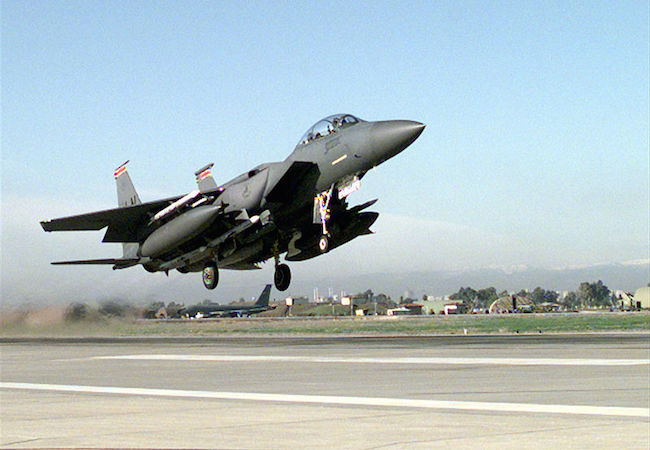U.S. nukes in Turkey

By Saima Ali
The United States deployed thousands of shorter-range nuclear weapons with U.S. forces in Europe, Japan, and South Korea, and on ships around the world, throughout the cold war era. These weapons were planned to lengthen deterrence and defend allies in Europe and Asia. While most were withdrawn in the 1990s, the United States holds around 200 B61 bombs in Europe. These serve not only to deter potential aggressors, but also as an important element in NATO’s structure. While all NATO nations apart from France contribute in NATO’s nuclear planning, some also store U.S. weapons on their soil and provide aircraft that could deliver them in a conflict. The Cold War-era nuclear weapons are part of NATO’s deterrence strategy.
The joint US-Turkish air base Incirlik is in southeast Turkey and houses NATO largest nuclear-weapons storage facility. The base has played a critical role in the fight against ISIS, as the US launches strikes into nearby Syria. During the failed coup in Turkey in July, the American Embassy in Ankara issued an emergency message for their citizens warning that power had been cut to Incirlik. U.S. Air Force planes stationed there were prohibited from taking off or landing and the security-threat level was raised to the highest state of alert. Eventually, the base commander was arrested over alleged participation in the agitation and implicated in the coup. Whether the US could have maintained control of the weapons in the event of a lingering civil conflict in Turkey is still an unanswerable question.
A US think tank has asked for the withdrawal of nuclear arms from Turkey’s Incirlik Air Base, saying the country is in disorder and is too close to the Syria conflict zone. The report prepared by the Stimson Center nonprofit think tank, titled B61 Life Extension Program: Costs and Policy Considerations’, questions the safety of American nuclear weapons stored at Turkey’s Incirlik Air Base.
This is not the first time concerns have been raised about the security of nuclear weapons in NATO nations. The US has long had nuclear weapons in Turkey, most notably Jupiter missiles that John F. Kennedy secretly withdrew from the country following the Cuban Missile Crisis of 1962 when the Soviet Union and America climbed down from the brink of a nuclear confrontation.
There is also no indication that US military personnel or technical experts from the Department of Energy went to Turkey to provide further oversight for the weapons or to move them outside of Turkey due to concerns about their security. It was reported earlier that American weapons are being moved to the Deveselu air base in Romania. However, the Romanian foreign ministry strongly denied the information that the country has become home of US nukes.
According to unspecified reports, U.S. B61 bombs are stocked up on racks in secure underground vaults, inside protective aircraft shelters. The shelters are within a heavily guarded security perimeter, with U.S. forces responsible for their security. Reports indicate that the security perimeter at Incirlik was upgraded in 2015, and includes double fencing, lighting, cameras, and interference detection devices. The bombs are reported to be 12 feet long and heavy. Even if someone gained access to the shelters and vaults, it would be difficult to move the bombs without proper equipment. The bombs are reportedly also equipped with Permissive Action Links (PALs), which prevent the arming and use of the weapons in the absence of an authorization code.
Most professionals agree the bombs are generally secure from unauthorized use and that U.S. forces would likely thwart most attempts to access or damage the weapons. But experts note the base is not impenetrable, and the safety, storage, and use control features are designed to delay unauthorized intrusion, access, and use while security forces defeat the threat and restore control. Some have speculated that a determined actor, particularly one with inside assistance, might be able to access to the vaults and eventually disable the PALs and, possibly, employ a weapon. At the same time, others note that, even if this scenario were possible, the perpetrators would have to achieve this goal while U.S. and NATO forces employed all means necessary, including deadly force, to recover the weapon. In other words, while one can imagine a scenario in which the weapons might be at risk, the probability of such a scenario succeeding is extremely low.
Although Incirlik probably has more nuclear weapons than any other nato base, it does not have any American or Turkish aircraft equipped to deliver them. The bombs simply sit at the base, underground, waiting to be used or misused. It is important to mention that the B61s are broadly considered more a political symbol of US commitment to the Nato alliance than a military asset. The US does not have aircraft at Incirlik qualified to deliver the weapons.
Pentagon spokesman Peter Cook said “We’ve taken all those steps that we need to take to make sure that everything that we control in Turkey is safe and secure,”. US officials say the raising of the security level had to do with overall security concerns and not the nuclear weapons in particular. However, the upgraded security posture does also provide enhanced security conditions at Incirlik.
Saima Ali works for Strategic Vision Institute Islamabad and can be reached as [email protected]




